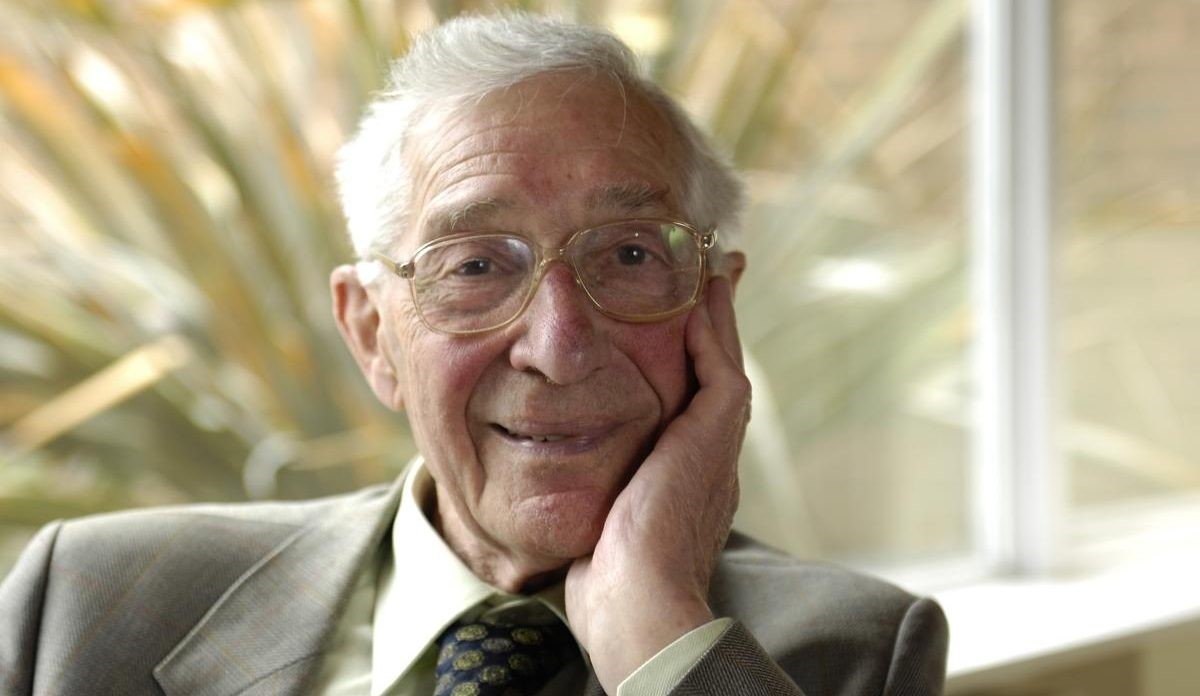Happy birthday Michael Loewe!
Professor Michael Loewe was born a hundred years ago, on 2 November 1922. He has been a Fellow of the Society since 1959, and at various times during the past sixty-three years has served on Council and committees, as a contributor to and reader for the Journal, and as internal auditor of the Accounts.

Michael is a scholar of early Chinese history, publishing original research in disciplinary journals (more than seventy articles), monographs, reference works and textbooks (more than thirty titles to his credit). Michael’s publications, which he has constantly updated as new material has emerged, have been translated into many languages. He also wrote with a general readership in mind, constantly seeking to interest others in the civilisations of China.
As a schoolboy in Cambridge, Michael proved a brilliant classicist, winning a scholarship to Magdalen College, Oxford to read Greats. However, in his first year at Oxford he was selected to learn Japanese on an experimental intensive language course designed to provide much-needed linguistic intelligence for war work. Rather than return to Oxford, Michael continued in government service after the war ended, teaching himself Chinese during a six-month posting in Beijing in 1947. This was his introduction to traditional Chinese history that set the course for his academic life. He took a first-class degree in classical Chinese at SOAS in 1951, then leaving the civil service he was appointed a lecturer in history, first at SOAS in 1956, moving to Cambridge in 1963 where he taught until his retirement in 1990.
Immensely well read, and acutely aware of the benefits of comparative history and insights from adjacent disciplines, Michael made the Han period (206 BCE – 220 CE) his own. Professor Denis Twitchett, writing in Asia Major on the approach of Michael’s eightieth birthday commented: ‘He was the first western scholar of ancient China to seize fully the novel opportunities that Chinese archaeology has provided …[opening] up new paths in administrative history, and in the difficult fields of religious beliefs about the afterlife and mythology.’ A new generation of historians of ancient China has emerged during Michael’s lifetime, both in China and the West, Twitchett continued, ‘many of them [Michael’s] students, and all of them under his influence. They have created … the liveliest, most diversified, and most innovative field of Chinese historical scholarship’.
Professor Roel Sterckx considers Michael to be ‘the West’s foremost historian of the institutions, administration, and daily life during the early Chinese empires. No student of Han China since the 1960s has been able to conduct research without Michael’s findings in the background. He has been an inspiring teacher, and few scholars have been so hospitable, so unselfish and so generous with their time to students and colleagues.’ Michael has also taken on more than a fair share of other work – membership of boards, committees, institutes, societies, his Cambridge College, Clare Hall – all part and parcel of creating a benign environment for the investigation and encouragement of learning and research about the societies of Asia.
The thirty-odd years since retirement have shown no let-up in his academic activity. He has continued to edit and publish apace: a recent monograph was published by Brill in 2016, and he even wrote an historical novel, Bing: From Farmer’s Son to Magistrate in Han China (2011). The novel is firmly anchored in surviving literary and material evidence from the period; its explicit purpose is to help ‘readers who are approaching China’s history for the first time and need some explanation of how the empire was being administered.’ But it is a good story, and the reader warms to Bing as he makes his progress from farm boy to high official at the Han court.
Michael has been honoured with Visiting Professorships at Stockholm, Harvard and Chicago, and many invitations as visiting scholar at numerous institutions in China, Taiwan, and Japan. He is an honorary Fellow of Peterhouse in Cambridge, and an honorary member of the American Academy of Arts and Social Sciences.
Michael last lectured at the Society in the summer of 2016. As a contribution to the Society’s 200th Anniversary celebrations he is donating a set of the first edition of the Collected Works of Sir William Jones (8 quarto volumes, edited by Lady Jones) and the associated Life of Jones by Lord Teignmouth. These will be formally received by the Society on Thursday 12 January 2023 when Professor Javed Majeed FBA will lecture on the academic and cultural significance of Sir William Jones’s scholarship. Michael will be thanked for his long-standing support of the Society, and his great generosity in providing the library with set of valuable books that it does not at present possess.
Gordon Johnson
Vice President, RAS
